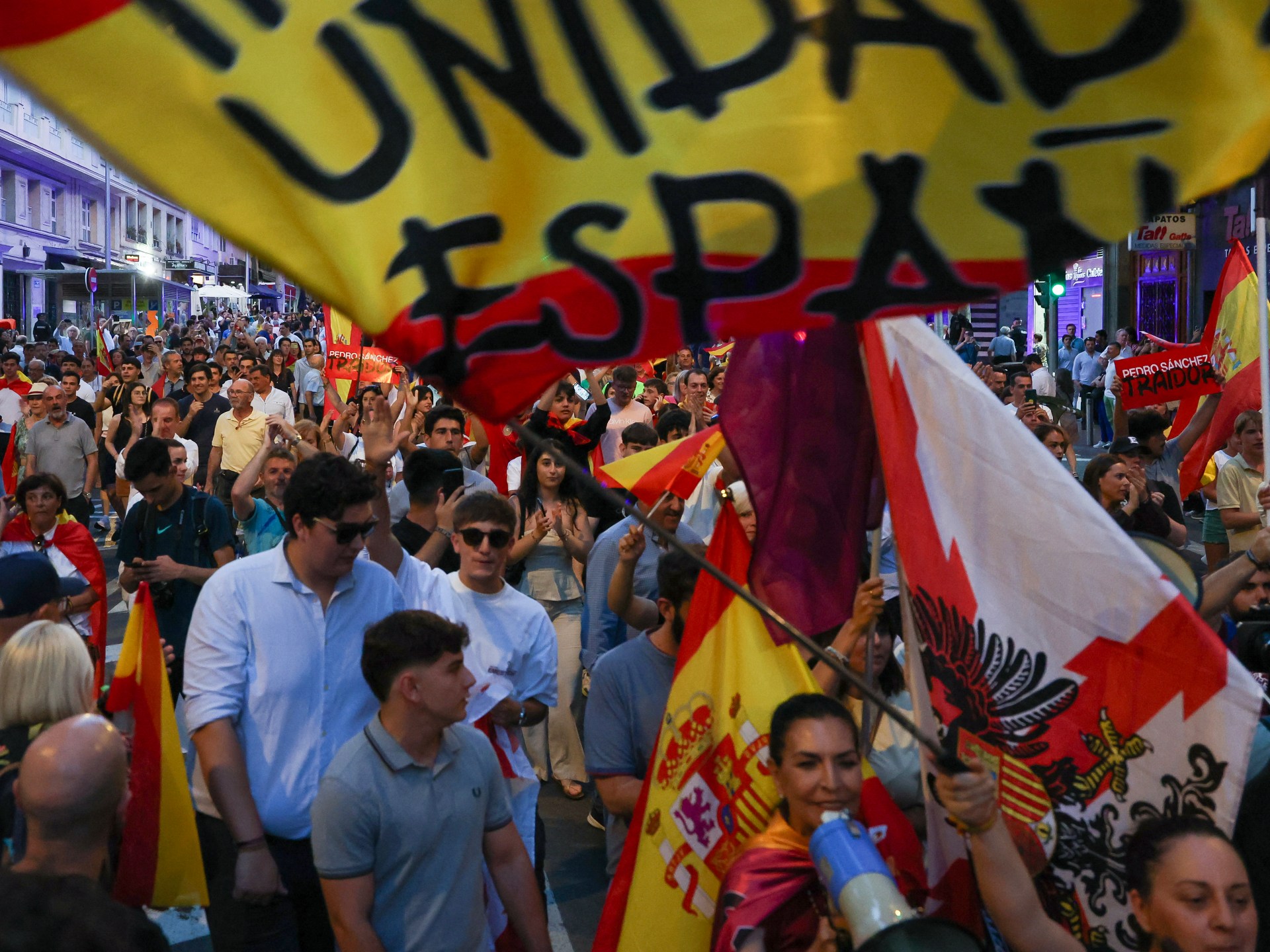A southeast Spanish town’s ban on religious gatherings in public sports facilities, which will primarily affect members of the local Muslim community, has drawn criticism from the left-wing government and a UN official.
Elma Saiz, the immigration minister in Spain, criticized the ban, which was approved by the conservative local government of Jumilla last week and demanded that local leaders “take a step back” and apologize to residents.
The ban, which the mayor’s center-right Popular Party approved, would apply to sports venues where local Muslims have recently celebrated religious holidays like Eid al-Fitr and Eid al-Adha.
The far-right Vox party initially proposed it, with changes being made before being approved. Spain is and always will be a land of Christians, according to Vox’s Murcia branch, which celebrated the measure earlier this week.
Seve Gonzalez, the mayor of the town, stated to Spain’s El Pais newspaper that her government wanted to “promote cultural campaigns that defend our identity” and that the measure did not specifically target any particular group.
However, Mohamed El Ghaidouni, the president of the Union of Islamic Communities of Spain, disputed the local government’s claim that the Muslim holidays held in the centers were “foreign to the town’s identity.”
He claimed that the state’s institutions, which protect religious freedom, are at odds with the ban.
Saiz claimed for Spain’s Antena 3 broadcaster that “citizens who have contributed and lived harmoniously for decades in our towns, cities, and countries have been negatively impacted by policies like the Jumilla ban.”
Separately, the UN special envoy to combat Islamophobia, Miguel Moratinos, expressed his shock at the City Council of Jumilla’s decision and expressed his “deep concern” about the rise in Islamophobic sentiments and rhetoric in some areas of Spain.
I am shocked by the city council’s decision to forbid religious celebrations and/or rituals in municipal buildings in the Murcia, Spain, municipality of Jumilla.
🔗 Full Statement ⬇️https: //t. . /co/WHADpxgIToPic twitter.com/Rd92XMdpVF
According to him, the Universal Declaration of Human Rights’ “right to freedom of thought, conscience, and religion” is undermined by the decision, according to a statement released on Friday.
Political biases that target or disproportionately affect one community “violate the principle of coexistence and undermine it,” he continued.
Locals and far-right clashes
Muslims have ruled Spain for centuries, and they are still evident in many of its most well-known landmarks, including Granada’s famous Moorish Alhambra Palace, as well as in the Spanish language.
The Catholics oversaw the end of Islamic rule in 1492, when Spain’s last Arab kingdom was dissolved.
Municipal sports facilities can only be used for athletic events or occasions organized by local authorities, according to the ban. Under no circumstances, according to the statement, can the center be used for “cultural, social, or religious activities outside the City Council.”
Following an altercation between an elderly resident of Torre-Pacheco and residents of the region of Murcia last month who were allegedly assaulted by assailants of Moroccan descent, it was brought on by its introduction.
Other right-wing governments in Europe have passed laws resembling those that were put in place during the Jumilla ban, which is at the heart of continent-wide debates about nationalism and religious and cultural pluralism.
Far-right mayor Anna Maria Cisint forbade prayers in a cultural center in Monfalcone, a large industrial port city in northeastern Italy with a significant Bangladeshi immigrant population.
Source: Aljazeera

Leave a Reply